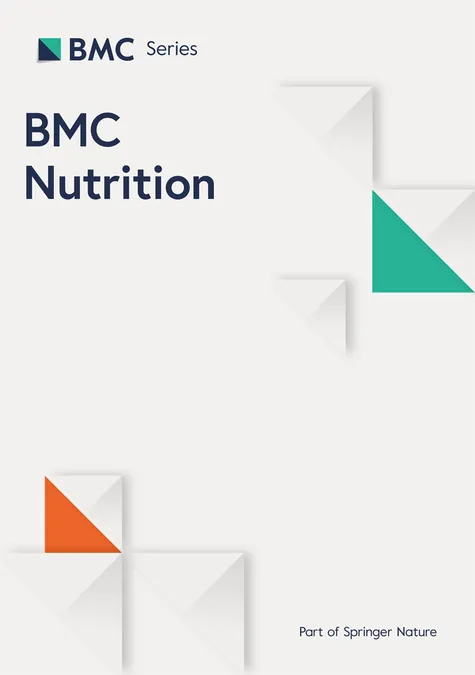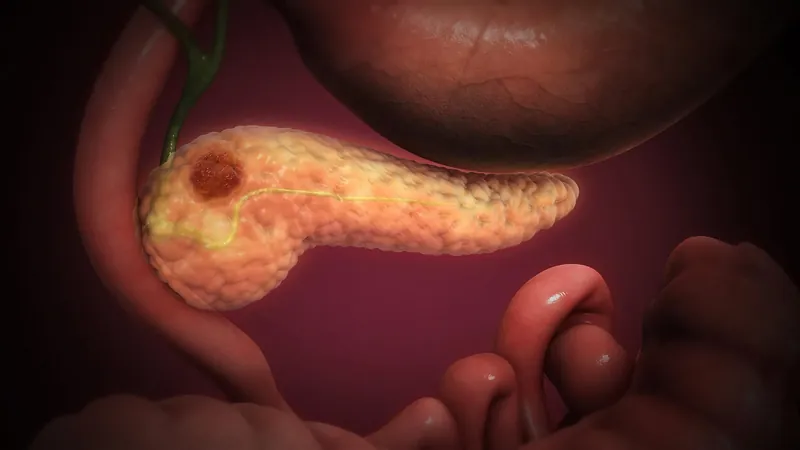
Revolutionary Insights Unveiled: How a Single Mutation in the BRCA1 Gene Could Spark Cancer Growth!
2025-01-20
Author: Siti
Groundbreaking Research on BRCA1 Mutations
The BRCA1 gene, a major player in the fight against breast cancer, has recently been thrust back into the spotlight following groundbreaking research that challenges long-held beliefs about how mutations within this gene contribute to cancer risk. For years, it has been accepted that carrying two mutations in the BRCA1 gene, known as the two-hit hypothesis, is necessary for cancer development. However, new findings from a team of researchers at Harvard Medical School suggest that just one mutated BRCA1 allele could be enough to set the stage for cancer growth.
The Study and Its Findings
Led by renowned biologist Joan Brugge, the research team aimed to unravel the complexities of BRCA1 mutations and their role in tumor formation. Their journey began when they received funding from an individual with a family history of inherited BRCA1 mutations, sparking the exploration of this vital gene.
In a study recently published in *Nature Genetics*, Brugge's team created a mouse model that mimics the progression of breast cancer in humans. The model included two strains of mice: one heterozygous with one mutated BRCA1 allele and another wild type with both alleles functioning normally. By introducing a lentivirus to inactivate additional BRCA1 alleles and the commonly mutated Trp53 gene, the researchers successfully induced tumor growth in the mice.
Revisiting the Two-Hit Hypothesis
Surprisingly, the heterozygous mice exhibited a faster tumor development rate, underscoring that while the two-hit hypothesis holds merit, it fails to encompass the complete picture of cancer predisposition linked to BRCA1 mutations.
Exploring Chromatin Instability
To dive deeper into the mechanics of this phenomenon, the scientists examined the chromatin—the structural framework around DNA—in both mouse types before tumor formation. Their findings revealed that the chromatin in the heterozygous mouse cells exhibited unstable characteristics more typical of cancer cells, allowing for easier activation of tumor-promoting genes. This suggests an epigenomic predisposition to cancer even with a single mutation, marking a significant departure from existing theories.
Implications for Cancer Treatment
This new understanding could pave the way for innovative treatment strategies for BRCA1-associated cancers. Experts in the field, like Mary Daly from the Fox Chase Cancer Center, speculate that targeting the factors responsible for chromatin instability could yield potent therapies. However, caution remains as researchers strive to determine whether these epigenomic changes are also present in human patients.
Future Research Directions
As the team embarks on the next phase of their research, they hope to harness sequencing data from a diverse consortium of women, including BRCA1 mutation carriers, to validate their findings. Brugge expressed her optimism, stating, “If we can confirm that these epigenomic changes occur in humans, we can begin to explore interventions to halt cancer development at its inception.”
Conclusion
This fascinating research opens new doors in our understanding of cancer genetics, suggesting that the path to prevention might be more intricate than previously thought. With further studies and validation, medical science may soon have new avenues for combating breast cancer at its core. Keep an eye on this transformative research—it could change the future of how we approach cancer prevention!


 Brasil (PT)
Brasil (PT)
 Canada (EN)
Canada (EN)
 Chile (ES)
Chile (ES)
 Česko (CS)
Česko (CS)
 대한민국 (KO)
대한민국 (KO)
 España (ES)
España (ES)
 France (FR)
France (FR)
 Hong Kong (EN)
Hong Kong (EN)
 Italia (IT)
Italia (IT)
 日本 (JA)
日本 (JA)
 Magyarország (HU)
Magyarország (HU)
 Norge (NO)
Norge (NO)
 Polska (PL)
Polska (PL)
 Schweiz (DE)
Schweiz (DE)
 Singapore (EN)
Singapore (EN)
 Sverige (SV)
Sverige (SV)
 Suomi (FI)
Suomi (FI)
 Türkiye (TR)
Türkiye (TR)
 الإمارات العربية المتحدة (AR)
الإمارات العربية المتحدة (AR)